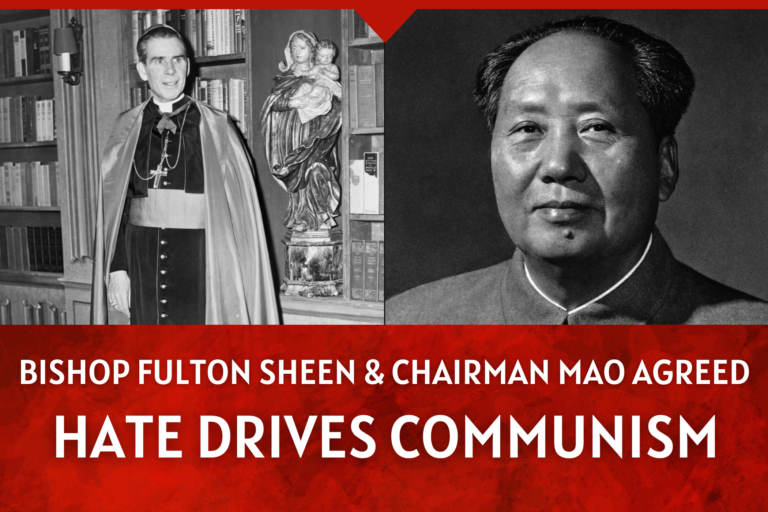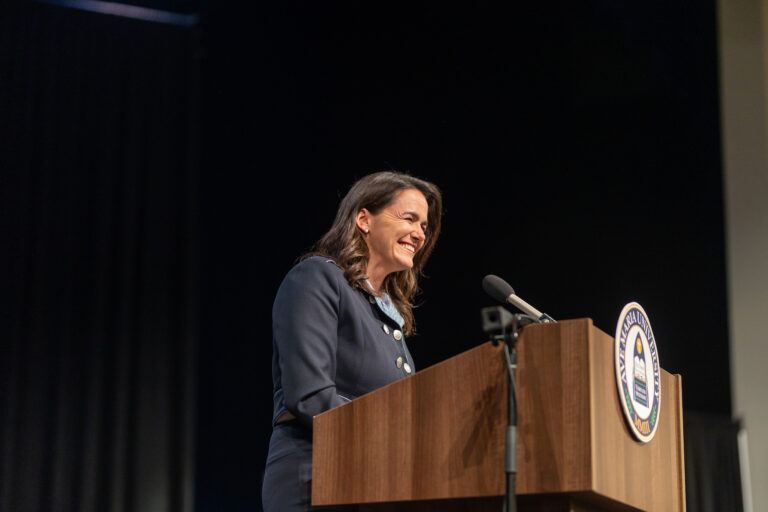[Editor’s note: PRI ‘s Weekly News Briefing is broadcast to a growing list of email recipients worldwide, including news reporters and editors. Our Weekly Briefing of 16 December 1999, Vol. l/No. 26, addressed New England’s depopulation crisis. It was re-broadcast by media in Maine, and sparked dozens of responses, including one from a woman who is “childfree-by-choice.” Steve Mosher responds.]
Depopulation Strikes New England…
The UNFPA seized upon 12 October 1999 — the date world population was to reach 6 billion — to once again raise the tired specter of overpopulation. Joined by the International Planned Parenthood Federation, they sought to frighten Washington into spending more money on family planning programs, both at home and abroad.
The most significant aspects of the birth of Baby Six Billion were deliberately left unmentioned: World population will never double again. If there is any population crisis in the developed world, it is one of looming depopulation, not overpopulation.
Take the growing labor shortage in the United States. Early in November, Federal Reserve Chairman Alan Greenspan released a report stating that American productivity and market competitiveness were being threatened by an ever-tightening labor force. How did he propose to address the problem? One suggestion was to increase imports, thus moving American jobs offshore. A second was to expand the workforce, which is hardly possible in a time of record-low unemployment unless you raise the age of retirement. Greenspan’s preferred option, however, was to increase immigration.
What Greenspan didn’t say was this: America’s birthrate has been below replacement since about 1970. There are simply too few young people coming into the workforce to fill available jobs. Another way of putting this is that America’s population growth rate is too low to sustain its current rate of economic growth, which will in turn increasingly affect its competitiveness on the world market. According to the Census Bureau, the present US rate of natural increase is only about one half of one percent annually, and is dropping rapidly. By 2030, barring either a significant increase in the birthrate, or a massive increase in immigration, the US population will be in absolute decline.
The problems this will cause are already apparent in the Northeast. A report issued jointly last week by the Center for Labor Market Studies at Northeastern University and the non-profit organization Mass INC underscores the social and economic impact of falling birthrates. Entitled The Changing Workforce: Immigrants and the New Economy in Massachusetts, the report highlights Massachusetts’ falling birthrates, and hence its increasing dependence upon foreign immigration for sustaining both the state’s population, and the growth and success of its economy.
The study placed Massachusetts as one of the five US states most dependent on foreign immigration — a dependence resulting from a combination of falling birthrates and domestic out-migration. The report found that, absent foreign immigration, the Massachusetts population would be smaller today than it was in 1930, and that foreign immigrants in Massachusetts were responsible for 82 percent of the net growth in the state’s civilian labor force between the mid-1980s and 1997.
This dependence on immigration for sustaining economic productivity extends throughout the entire Northeast Corridor. New York, New Jersey, Rhode Island and Connecticut together with Massachusetts make up the five US states most dependent on immigration to generate labor force growth. If not for foreign immigration, the current labor force of the entire New England region would be 200,000 workers less than it was in 1990.
“Many New Englander’s have voluntarily adopted a one-child policy justifying their selfishness by an appeal to the myth of overpopulation,” said PRI President, Steven W. Mosher. “Having chosen fewer children, they will either admit more immigrants or watch creeping economic stagnation infect the entire region. ‘Give me your tired huddled masses yearning to breath free’ will be in effect rewritten to say ‘Give me your tired huddled masses … to fill our emptying classrooms, take our vacant jobs, and support us in our old age.’”
If birthrates continue to fall according to current projections, Massachusetts and the Northeast Corridor will be joined by more and more states in their dependence on foreign immigration. This slow-burning demographic implosion will be one of the principal challenges facing the US during the next millennium.
Dear PRI:
I am a 32-year-old woman who is childfree by choice. I choose to be childfree because I have never felt a “maternal” longing or instinct, and do not believe it would be right to have a child just because society tells me it is what I “ought” to do as a woman. I enjoy a fulfilling career, and do not wish to make the sacrifices necessary for raising healthy, happy children. I wish to travel with my husband and enjoy adult activities as a couple. My sister and I have often discussed my childfree feelings, and she is supportive of my decision, just as I am supportive of her choice to have children.…
I do not hate babies and children, I just choose not to have them. From our discussions, she understands that many childfree people choose to use the issue of overpopulation as a reason for not having children. I understand that this is at popular catch-phrase, and that there has long been discussion on the issue of the “world’s resources” and whether or not the earth could support a population beyond a certain number, etc. This is not my reason for not having children, but I understood some of the feelings of those who cite overpopulation concerns as a reason for not having children.
In any ease, my sister came across the article “Depopulation in New England States?” … and emailed it to me for my information in case I wanted to discuss it with childfree people.
I was reading the article with great interest… until I got to your comments near the end. You said: “Many New Englander’s have voluntarily adopted a one-child policy, justifying their selfishness by an appeal to the myth of overpopulation .….”
I find your comments extremely offensive. To state that the choice to remain childfree is “selfish” is completely contrary to what I believe and feel. How is it selfish for me to make the decision that I do not want children… and do not wish to make the sacrifices I know are necessary to raising a responsible, healthy, caring adult? I would rather call that “rational.”
Yes. I recognize it is a sacrifice to have children. But that does not automatically make the choice not to have them “selfish.”… How is it any more justified to rail at those of us who, through the same free will of CHOICE, choose NOT to have a child? Should I have a child I do not want to prove that I am selfless?
You had some excellent points in your article. But you lost me when you decided to insult my own free will of choice, deciding instead that your choices are better than mine.
“Childfree-by-Choice”
Maine
Dear ‘Childfree-by-Choice’:
I quite enjoyed reading your letter, which was a thoughtful and reasonable defense of your right to remain childless (or childfree, if you prefer). But surely you recognize that you do not have to defend your right to do this against us. We at PRI believe that couples should be free to decide for themselves the number and spacing of their children, if they choose to have none, that is their choice.
What we see in New England, however, are the consequences of a large number of people making that choice. And the consequences — economically, demographically, and sociologically — are sobering. People need to come to grips with the collective consequences of their individual decisions, not least so they can begin to plan for them.
People also need to understand that overpopulation is a myth. These who predicate one of the most important decisions of their lives — whether or not to have children — on the myth of overpopulation are surely going to be disappointed when the reality of incipient depopulation breaks through.
Your real objection is that I characterize the decision to remain childless as “selfish.” Yet you yourself admit that, in your own case, you have chosen to remain “childfree” because of your desire for a “career,” “travel,” and other “adult activities.” You describe yourself as not being willing “to make the sacrifices necessary to raise … children.” It seems to me that there are only two ways to arrange one’s life. You can live your life for yourself, or you can live it for others. I believe that a life of love and service to others, including one’s own children, can fairly be described as “selfless.” A life spent absorbed in self-advancement, in search of the exotic, or in other self-centered pursuits can fairly be described as “selfish. I hasten to add that I do not apply this descriptor specifically to you. For all I know (and hope), you work for a non-profit publishing company, volunteer at the local homeless shelter 20 hours a week, or lead pilgrimages to the Holy Land for your local church.
Sincerely yours,
Steven W. Mosher
President
Demographic Implosion:
“America’s birthrate has been below replacement since about 1970. If birthrates continue to fall according to current projections, Massachusetts and the Northeast Corridor will be joined by more and more states in their dependence on foreign immigration. Another way of putting this is that Americas population growth rate is too low to sustain its current rate of economic growth, which will in turn increasingly affect its competitiveness on the world market. This slow-burning demographic implosion will be one of the principal challenges facing the US during the next millennium.”
Steve Mosher, The Washington Times, A2, 22 December 1999.










